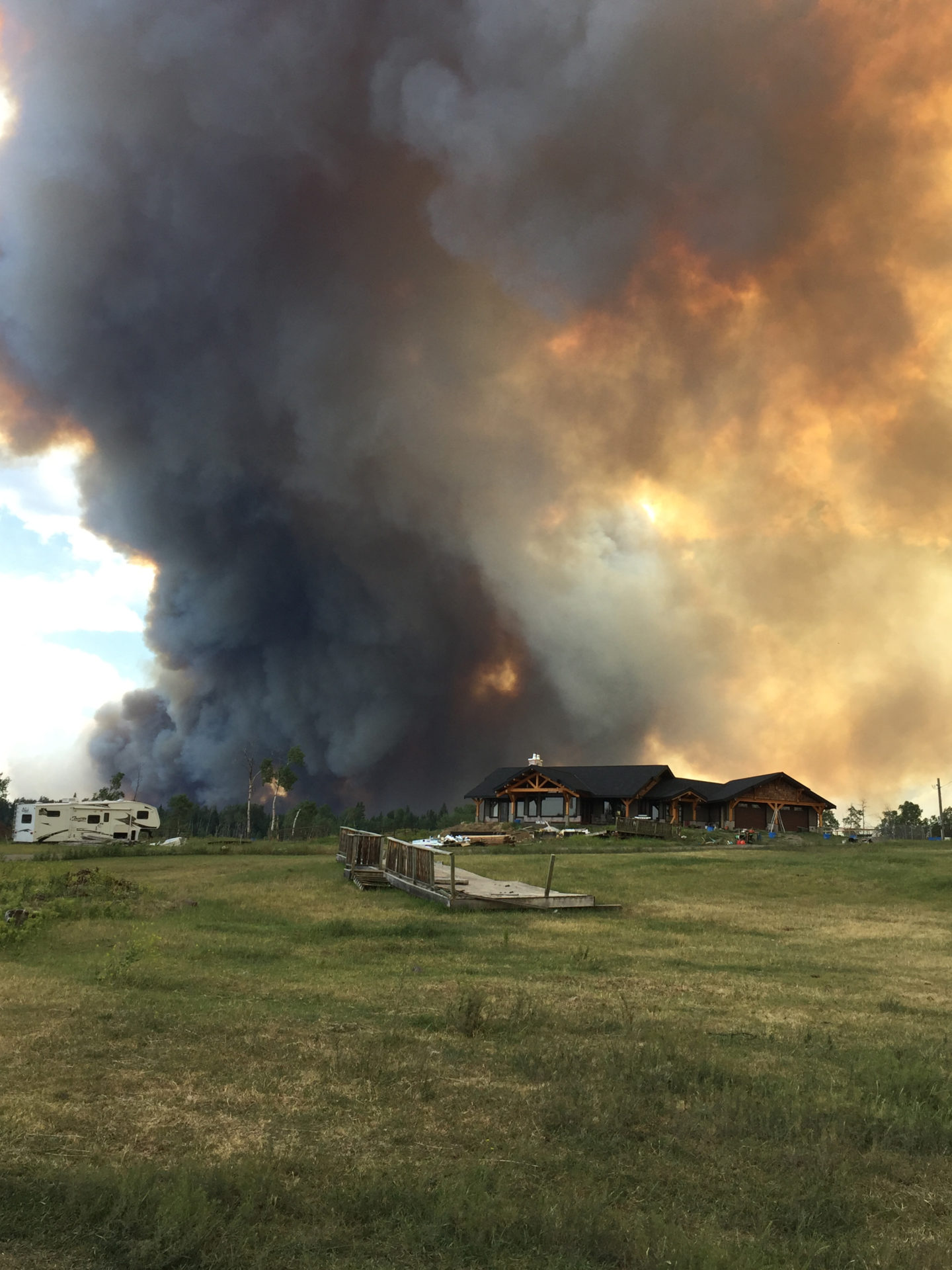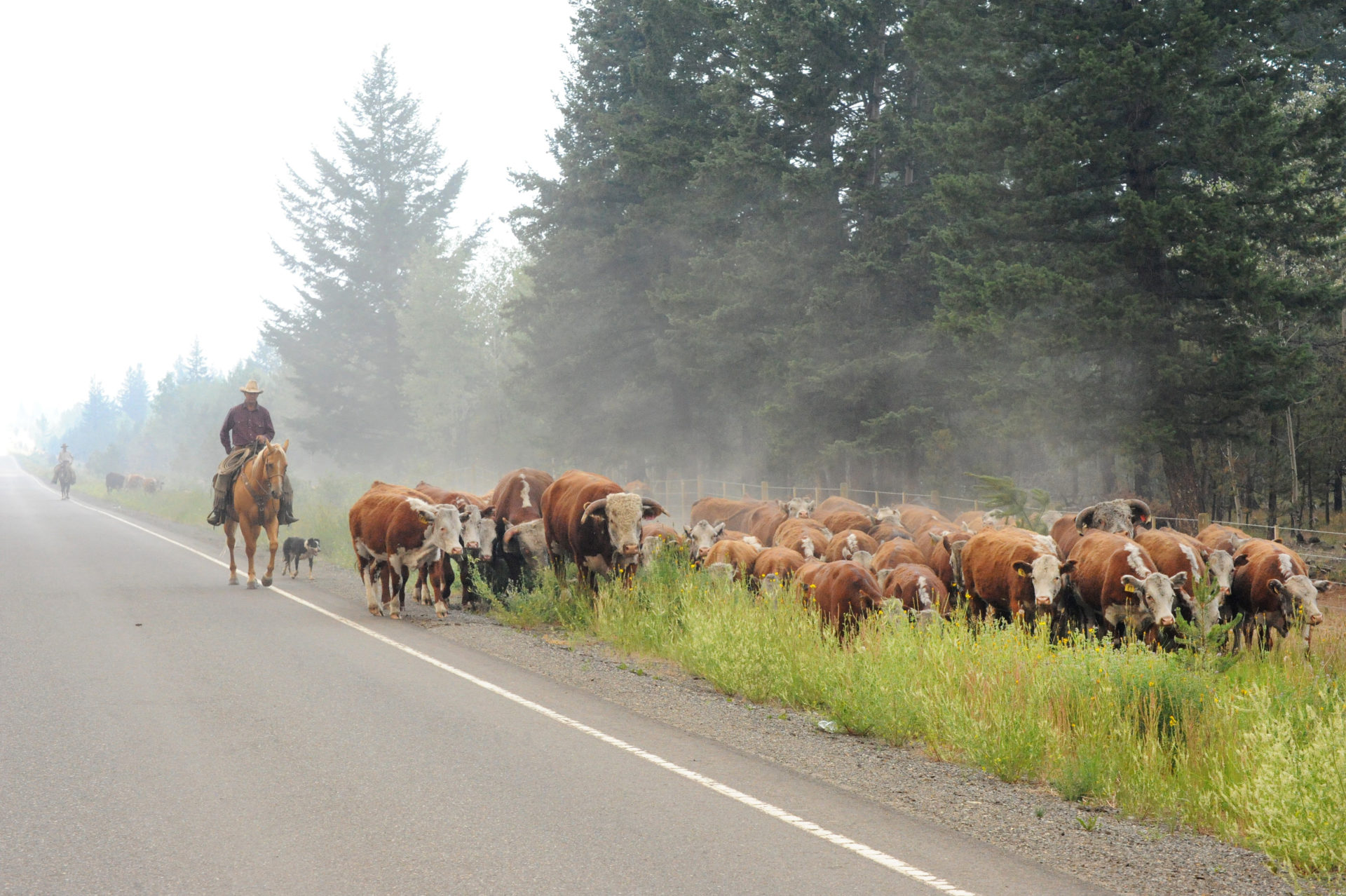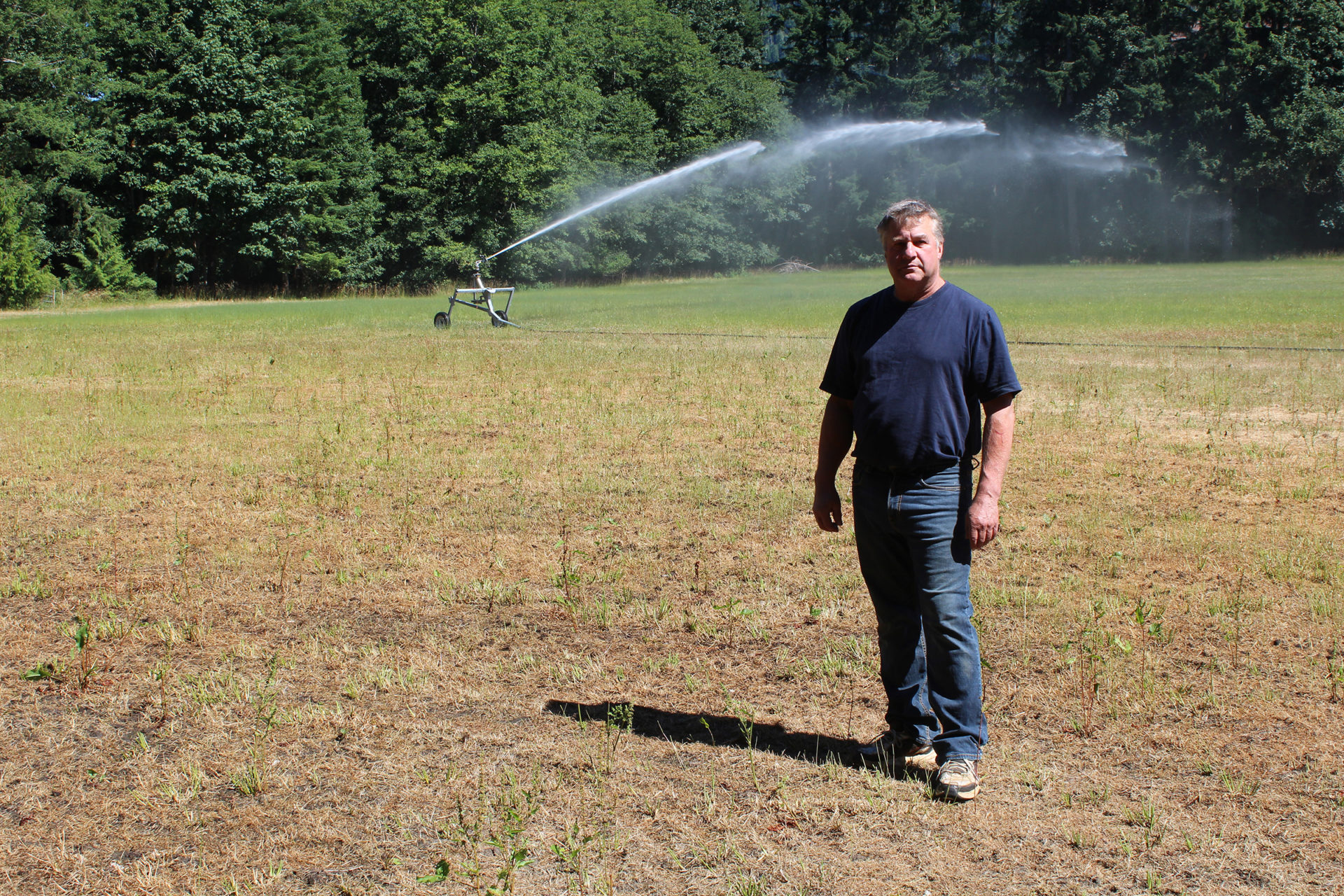WILLIAMS LAKE – On July 6, Cheryl Monical and her husband Ed noticed smoke over the hill while moving cattle at their ranch near 105 Mile House. Twenty-four hours later, they were fighting a wildfire 200 feet from their doorstep.
“At the time the fire was coming at us, the police showed up and told us that we were under evacuation and we refused to go, so they took our vital information and who our dentist was and wished us luck,” says Monical. “It’s kind of creepy when they ask you for your dental records.”
Like many ranchers this summer, the Monicals chose to stay and fight. They built fire breaks, put out spot fires, installed sprinklers on buildings and tried to keep their cattle off the roads. With the support of neighbours and friends, the family fought the fire for five days before fire crews arrived.
“Forestry crews showed up on Wednesday afternoon and the fire boss said, ‘We were wondering why there was a straight line in the fire on the north edge,’” recounts Monical. “The fire crews didn’t know we were out there. The helicopters knew we were out there because they kept dumping water for the boys when they had time.”
Communication in any emergency is key but this year more than 200 wildfires sparked within a few short days. Closing the gaps was more difficult, leaving many ranchers feeling like they’ve been fighting the authorities as much as the fires.
“People were fighting against neighbours and ranchers working together to save their part of the community,” says Monical. “If that fire got past our homemade farmer firebreak, it was going to go straight into a bunch of big fir timber and straight to Lac La Hache from there.”
Kevin Boon, general manager of the BC Cattlemen’s Association, has been working to help improve co-ordination – taking calls from ranchers in need and relaying information to the Emergency Operations Centres.
“So many times, these ranchers are the first line of defense. … These people who stay behind know the lay of the land, know how to manoeuvre through it. They’re out to help the situation,” he says. “We have to work out a better system of communication to be able to get this access for the legit person who needs to be there for a legit reason.”
BCCA would like to see more ranchers receive S-100 Basic Fire Suppression and Safety training, which the BC Wildfire Service offers. In the meantime, he’s working with officials to take the pressure off ranchers like the Monicals who have stayed to fight the ongoing fires, some of which remained uncontained at press time.
“A lot of ranchers can’t get back in if they leave, so they are in greater danger because they are running out of food and fuel. Instead of starving them out, let’s help them stay to look after things we don’t have resources for right now,” says Boon.
His words resonate with Monical.
“What really got us was on the Saturday we had four water tanks and we were beating that fire back. On Sunday, they wouldn’t allow our people to cross security lines and we were down to one tank,” she says. “We had a fellow coming in with a water tank and fuel – he got arrested and they seized the truck. It’s a total lack of good management in my mind.”
Gratitude
While frustrations run high, so does the appreciation of the tremendous effort that has gone into protecting people, property and livestock during the crisis. Wylie Bystedt farms near Kersley, south of Quesnel, and when winds whipped a lightning strike into an inferno near her ranch in only two hours, fire crews hit hard and fast.
“We were advised to leave but we didn’t. When fire happens that quickly, it doesn’t give decision-makers a lot of time in terms of organizing responses or evacuation orders,” she says. “They hit the fire really hard the first night. The second water bomber saved my house and outbuildings. If it was 30 minutes later, I wouldn’t have a house.”
Bystedt and her husband retreated to the highway at the fire’s peak but returned that night to fight spot fires and ground fires while ground crews fought further away.
Despite the speed and intensity of the fire, they didn’t lose any livestock.
“We saved them all. Well, the llamas saved themselves. They were out in the back field so we had no way of finding them or catching them,” says Bystedt. “At the time of the fire, we had no time to even think about evacuating livestock. We put sprinklers on chicken coops and animal sheds and hoped like hell that they weren’t needed.”
With the fire in her area contained, roadblocks are coming down and people are getting on with the work of rebuilding.
“This has been a really tough year for local agriculture. We had floods in the early season; now, we have fires over the summer,” says Bystedt. “We’re not going to know


 Wildfires put hundreds of ranchers at risk
Wildfires put hundreds of ranchers at risk